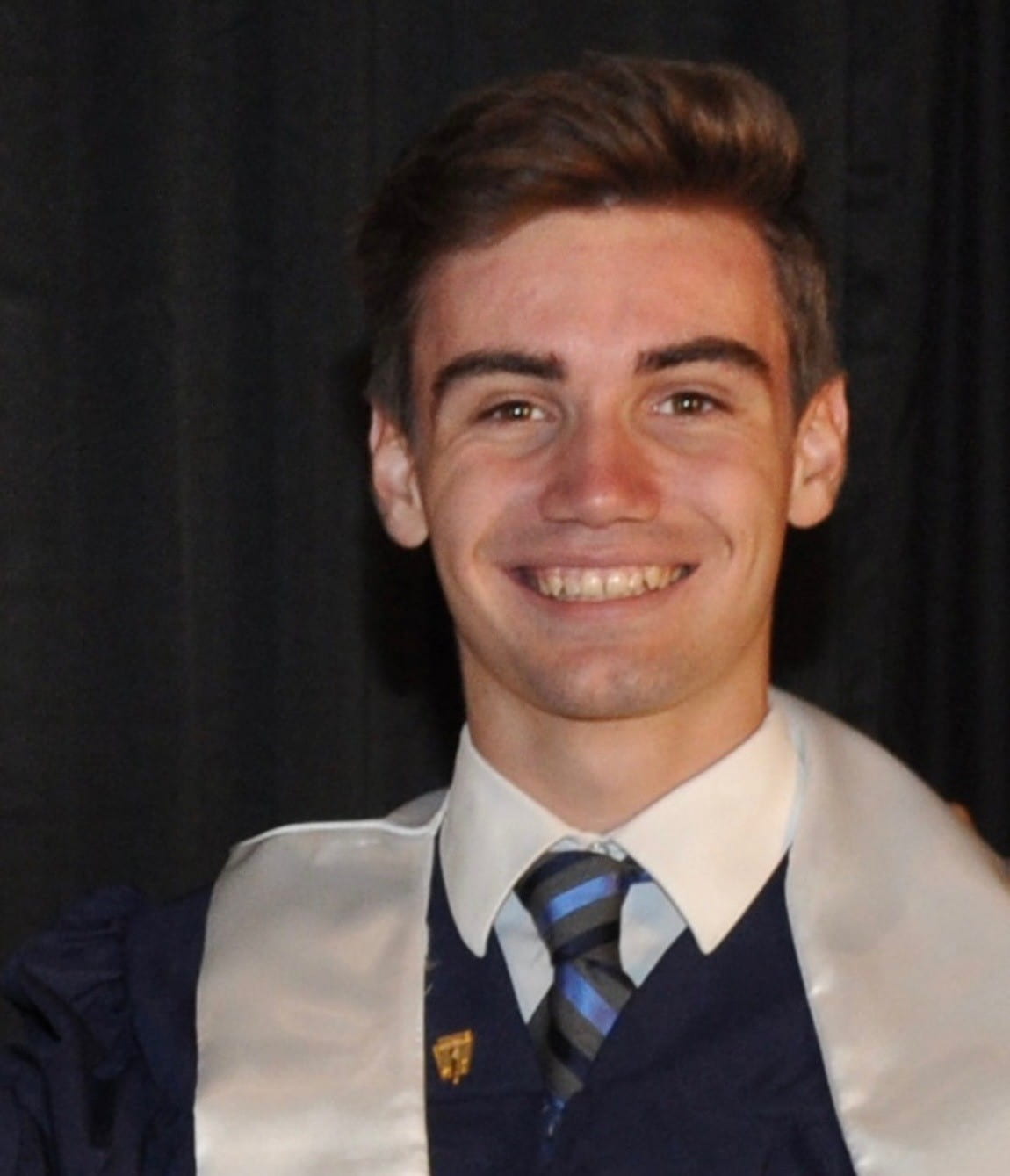 University of Delaware Honors College and University Studies sophomore Judah Deitrich knows a few things about the sport of hockey, player confidence, and how it affects decision-making — and it’s not what you’d expect.
University of Delaware Honors College and University Studies sophomore Judah Deitrich knows a few things about the sport of hockey, player confidence, and how it affects decision-making — and it’s not what you’d expect.
Deitrich recently turned his pioneering research into a paper for his Fall 2022 Honors Colloquium course that earned him first place and a $1,000 scholarship in the Socionomics Foundation Competition given by the Socionomics Institute in December 2022. It is the second time a UD student has won this award. [Mark Battle won the award in 2017 for a paper on confidence and NASA space exploration].
According to Ray Peters, Assistant Director of the Honors College, Honors Colloquia are “seminar-type classes that are interdisciplinary and discussion-based, that allow students to think more deeply,” about topics and give them the confidence to question and discuss together. “It is taken in the first year, or if you are a World Scholar (like Deitrich, who spent his freshman fall in Greece), you take it the fall of your sophomore year.” Honors Writing Fellows – upper class peer tutors – are assigned to each Colloquium.
Deitrich took Peter Atwater’s colloquium Confidence and Decision Making in fall of 2022.
“My class looks at confidence as a topic,” Atwater says. “Everyone thinks it’s being successful, like Elon Musk, Tom Brady — but that’s not at all what it is. We spend the first third of the semester redefining it and why it has an impact on the choices we make. When we don’t have confidence, we tend to be much more self-interested, and vulnerable feelings shape the choices we make.”
“We look at ways confidence impacts us, how we behave in terms of social unrest, politics, the type of leaders we follow, the arts and music we listen to, to sports, and all the ways it connects including consumer confidence.”
It’s called socionomics, a field of study conducted under the hypothesis that waves of social mood motivate the character of social actions, according to the Socionomics Institute, and Atwater encourages all his students to submit papers to the Institute’s competition.
At first, Deitrich says, he was quite skeptical of his professor’s theories.
“I think I even accused him of cherry-picking his examples,” Deitrich says with a laugh. “How the way people feel, about the economy or other events in their lives, can have drastic effects on unrelated things like investment trends, fast food trends, trends in clothing, sports—it felt like he was hand-picking the stats to line up.”
But then, Deitrich did his own research on his favorite sport: hockey. And his results were not what he was expecting.
“I’ve recently really gotten into hockey, Carolina Hurricanes are my team, I find it entertaining to watch and the statistics very fun to track,” he said. Deitrich also knew he would have the data and statistics necessary, such as how many goals a team scored 20 years ago, and success and consumer confidence over the decades. He followed Wayne Gretzky’s career in his research paper. He found several ways confidence impacted the sport.
“One of my main ideas was going to be that goals are scored when people are confident, that feels natural and right,” Deitrich said, “but I found the exact opposite – I was surprised!”
Deitrich quickly discovered that when confidence is low, more goals are scored, confidence impacts goalies more, not the person making the shot.
“I had to think about what leads to goals, and it’s shots, but it’s the goalie’s save percentage – that lined up with confidence in a time period — that was the missing piece,” he said. “When confidence was high, goalies made more saves. Confidence impacted the goalie, not the person making the shot.”
“It’s an exceptional paper on how social mood has influenced the game of hockey,” said Matt Lampert, President of the Socionomics Institute that awarded the prize to Deitrich. “Judah found a way to make multiple pioneering contributions, including the observation that goals increase when social mood trends negatively due to goalie dullness of focus and error …Well done to Judah.”
Deitrich says he’s honored to have won the competition.
“I’m so surprised and thankful,” he said.
Meanwhile, taking the Honors Colloquium made an impact on Deitrich.
“I started out so skeptical,” he said. “But when I saw my own research lineup so closely with the idea that the way we think, make decisions, process, change based on how confident we are, even if it seems unrelated, it definitely changed my mind.”
“I really enjoyed the Honors College Colloquium experience,” Deitrich said.
